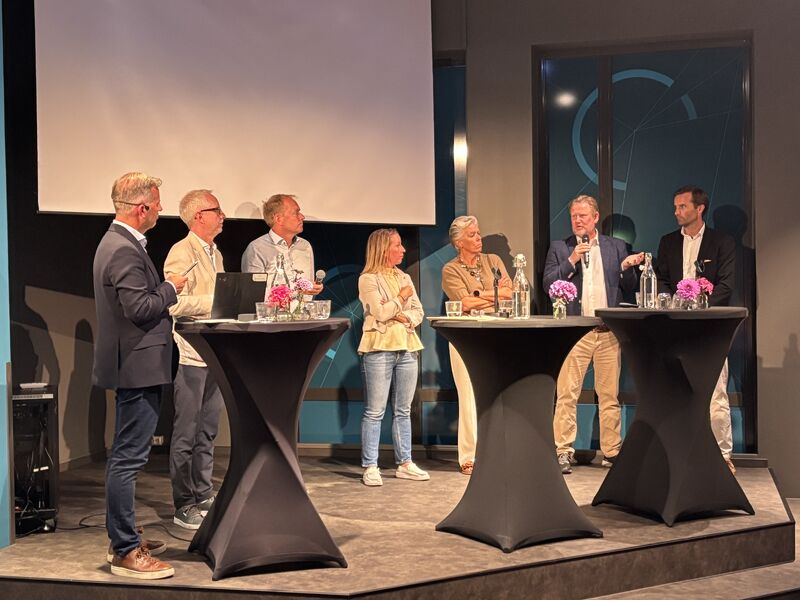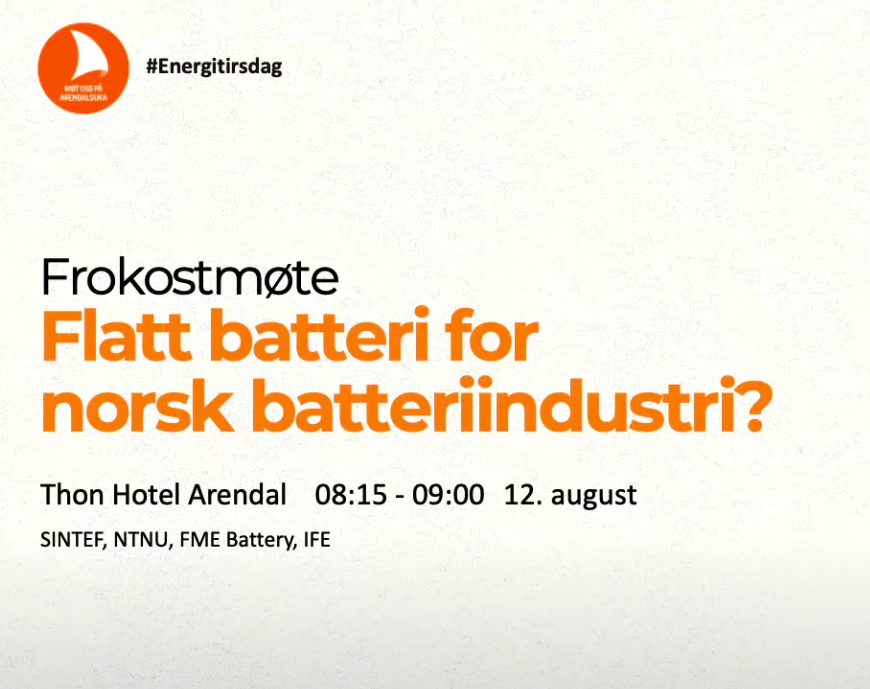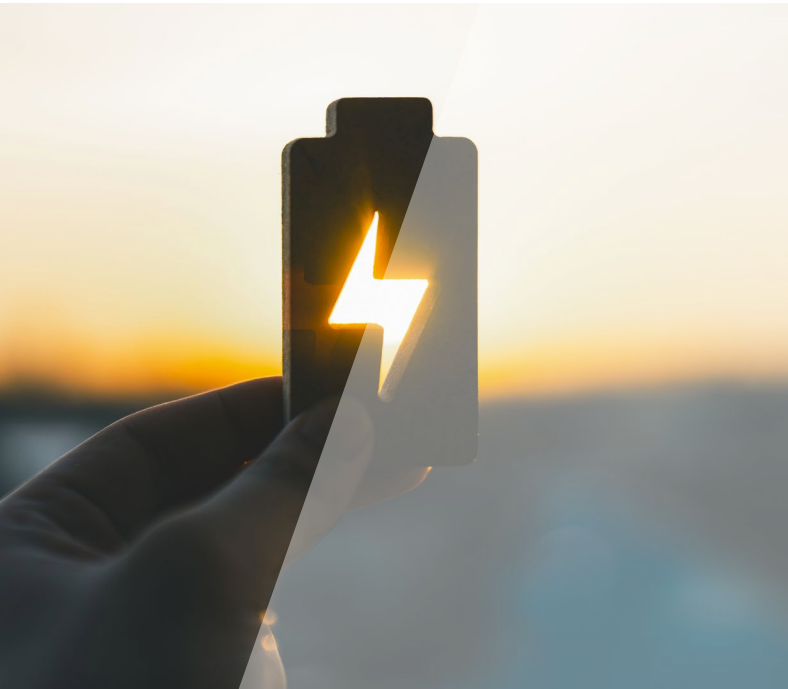FME BATTERY at Arendalsuka
FME BATTERY at Arendalsuka 2025
Arendalsuka serves every year as a strategic arena which fosters an open dialogue between politicians, industry leaders, researchers and the public. Arendalsuka 2025 served as a dynamic platform for Norway’s battery ecosystem to showcase its ambitions, challenges, and collaborative spirit. FME BATTERY was at the heart of several key events, bringing together researchers, industry leaders, and policymakers to discuss the future of sustainable battery technology.
Reframing the Narrative: From Cost to Value
While media headlines have focused on the financial cost of Norway’s battery industry, a breakfast meeting, co-hosted by SINTEF, NTNU and FME BATTERY: “Flatt batteri for norsk batteriindustri?” offered a much-needed counterpoint. The session emphasized that when battery companies succeed, they generate significant returns for the state. FME BATTERY partner, Corvus, for example, holds 50% of the global market for maritime battery systems and has repaid public investments many times over.
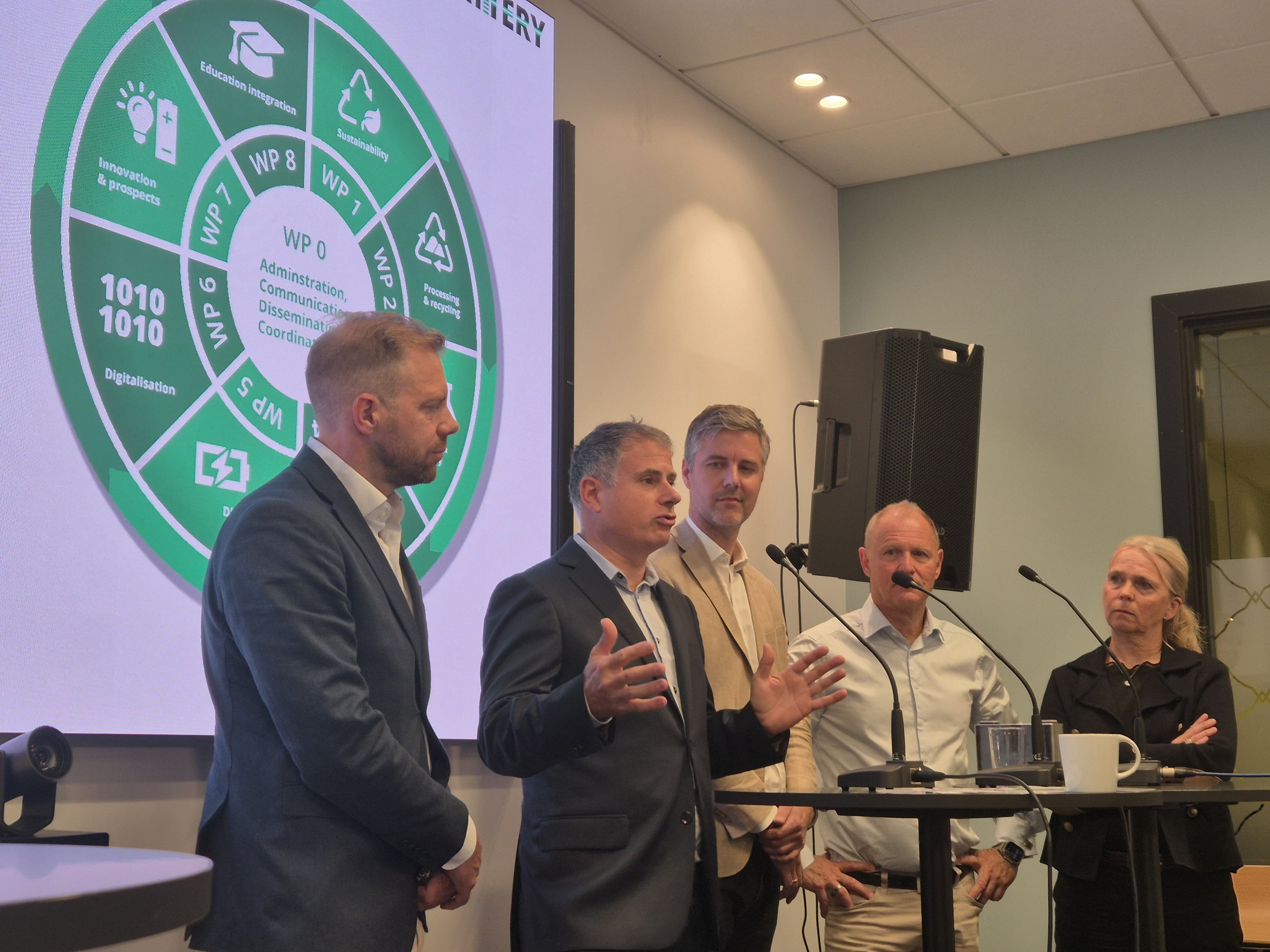
Other players are also gaining momentum:
- Vianode is now Europe’s largest graphite producer for battery anodes and recently signed a multi-billion-kroner contract with General Motors.
- Morrow has launched LFP battery production in Arendal, becoming Europe’s first large-scale manufacturer of this type.
- Elinor and Beyonder plan to establish factories in Norway, though they currently produce in China.
Hanne Flåten Andersen, Centre Director of FME BATTERY, emphasized that while parts of the industry face headwinds, battery research in Norway is far from “flat.” With 32 industry partners and an 8-year horizon, the centre is tackling themes such as sustainability, new materials and chemistries, production, system integration, recycling, digitalization, innovation, and education.
In another session on decarbonizing Norwegian industry, FME BATTERY joined FME ZeMe and NTNU Energy Transition to explore strategic pathways for industrial transformation. Discussions touched on supply security, competitiveness, and the Clean Industrial Deal’s implications for battery markets.
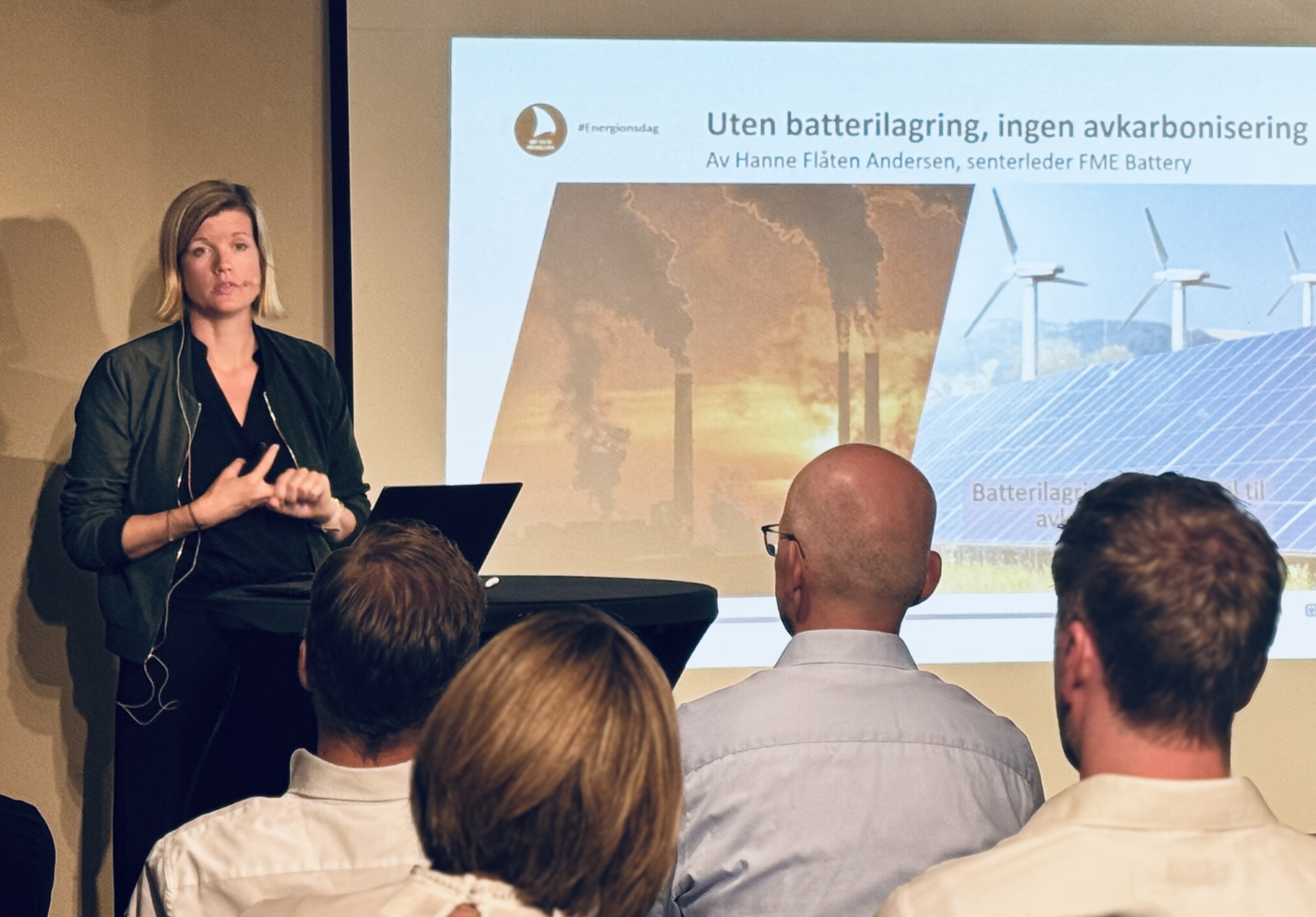
Security, Sustainability, and Strategic Thinking
In the session organized by our partner, Battery Norway “Batterier – beredskap og bærekraft i en urolig tid”, the panel agreed: Norway needs a holistic strategic approach to its battery industry, one that goes beyond price. Political decisions must also consider security and preparedness and invest in competence-building across the value chain to ensure long-term resilience.
Strategic Imperatives for a Viable Battery Future
Across sessions and informal gatherings, three key themes emerged:
- Collaboration Across Borders and Sectors
Norway must foster deep cooperation between industry, academia, and research institutions across the entire value chain and beyond national borders. The EU’s push for a European battery value chain is driven by supply security, environmental goals, and job creation. As geopolitical tensions rise, this collaboration becomes increasingly vital. - Reframing Public Support as Investment
Financial support for battery innovation should be seen not as subsidies, but as strategic investments. As the Corvus example shows, smart public funding can yield strong returns. The same applies to research and development: funding R&D is an investment in future technologies and national competitiveness. - Streamlining Regulatory Frameworks
Beyond financial incentives, Norway must improve bureaucratic and regulatory conditions. These changes often cost nothing but can significantly accelerate industrial development and innovation.
Looking Ahead
As Hanne Flåten Andersen noted,
“Norway has unique advantages. Especially in maritime applications, system integration, and recycling. Even in tough times, there are growth areas where we can lead globally.”
FME BATTERY will continue to:
- Be a strong voice in the public debate.
- Strengthen ties between research and industry.
- Support emerging battery education and talent recruitment.
- Advance circularity and sustainability across the value chain.
Arendalsuka has shown that engagement is high, and now it’s time to turn words into action.

